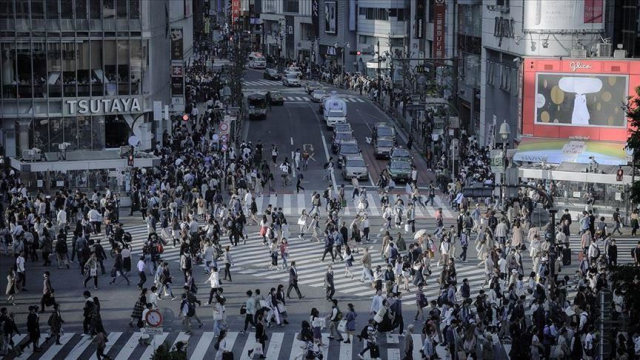De-growth only solution to tackle climate change: Expert
Restraining population growth, consumption per capita is way to tackle climate change, says scientist

The problem of climate change cannot be solved without tackling earth’s growing human population, which gives rise to greater consumption and carbon emissions, according to a climate scientist.
Known as the greatest threat to the planet, the climate crisis is exacerbated by growing pressure from the human population, while it continues to increasingly affect the planet’s inhabitants.
In an interview with Anadolu Agency, Levent Kurnaz, a professor at the Center for Climate Change and Policy Studies at Istanbul's Bogazici University, described the link between climate change and the humans as "two cycles" instead of one "vicious circle."
The main reason behind climate change is greenhouse gas emission, especially CO2, he said, noting that a rising number of people will eventually have an effect on themselves, as more people bring more consumption, and there will be more emission.
So many people leads to consumption and more CO2 emission. More CO2 leads to more climate change which also negatively affects people, Kurnaz said.
He said it cannot be defined as a "vicious cycle" because a growing population fosters climate change, but not vice versa. Rather, he said, there are two cycles that "will be broken at one point."
The global population is projected to reach 11 billion by 2100, with a 70% chance of continued growth next century.
Kurnaz said he believes that population growth, accompanied by the severity of climate change-related extreme events, will not allow the planet to see 11 billion people.
Millions of lives at risk
"When these kinds of projections are being made, they are calculated according to various scenarios. In other words, if there were 11 billion people, we ask the question: how much climate change will they cause?
“But the main thing here is that the problem brought by that climate change will prevent us from reaching that 11 billion population," he explained.
He said climate change will affect agriculture and lead to sea-level rise that will put an enormous number of people at risk who live in coastal areas, as in China, India, and Bangladesh.
On the World Meteorological Organisation's announcement that the world could hit 1.5-degree warming in the next five years, he said this does not contravene the 2016 Paris Agreement's aim, as the climate deal targets keeping the global temperature rise this century well below 2 C above pre-industrial levels by reaching carbon neutrality and absorbing CO2 from the atmosphere.
The world could see annual global temperatures pass a key threshold for the first time in the coming five years, the UN weather agency said July 9.
Kurnaz said, however, that currently there is not and will never be a specific technology that enables countries to absorb CO2 from the atmosphere.
Breaking the cycles
Parties to the UN Framework Convention on Climate Change (UNFCCC) reached an agreement to fight climate change and achieve a sustainable low-carbon future.
The Paris Agreement, defined as "a bridge between today's policies and climate-neutrality before the end of the 21st century," seeks to strengthen the global response to the threat of climate change by keeping global temperatures from rising above 2 C degrees of pre-industrial levels over the next century and to pursue efforts to limit the temperature increase even further to 1.5 C degrees if possible.
The only solution to tackle climate change is de-growth, not only economically but also de-growth of the population, he stressed.
As a theory that criticises economic growth, de-growth is based on various frameworks, including political ecology, ecological economics, and environmental justice.
Reiterating the cycles of the growing population and climate change, he said: "Both cycles need to be broken ... even if we leave aside all our consumption habits, and keep what we eat at a minimum, if the human population rises to 20 billion, this problem will continue."
"On one hand, we need to restrain population growth around the world, and on the other, we need to restrain consumption per capita," he said.



















COMMENTS
Comments are moderated and generally will be posted if they are on-topic and not abusive.
For more information, please see our Comments FAQ